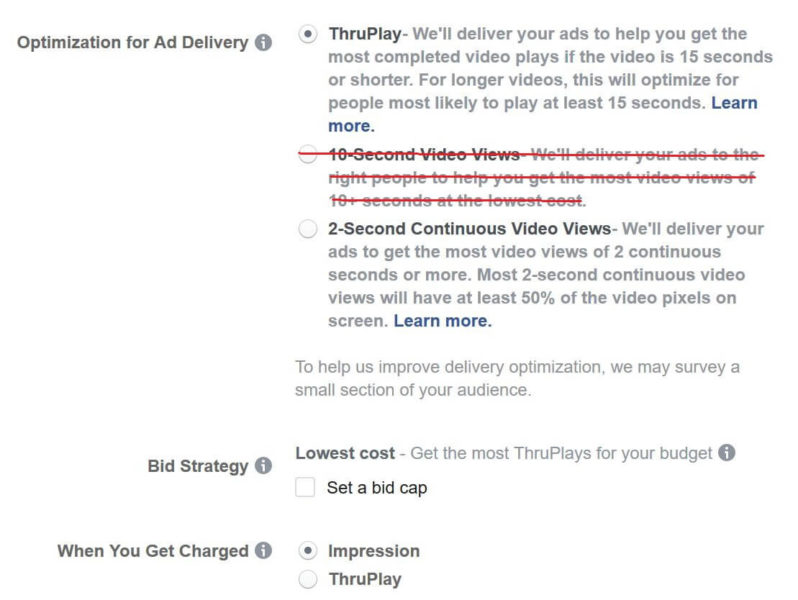Facebook makes ThruPlay default for video campaigns, begins phasing out 10-second view optimization
You'll need to manually change campaigns set to optimize ad delivery for 10-second views, or your campaigns will be paused at the end of July.
Facebook is making ThruPlay the default buying option for video ad campaigns, the company announced Thursday.
It will also begin the process of sunsetting 10-second video view optimization beginning this month. Starting July 31, Facebook will pause campaigns still set to use the 10-second video view optimization.
Why we should care
The ThruPlay video option, launched in September, optimizes ad delivery to target users who are likely to watch the entire video or at least 15 seconds of longer videos. The 10-second delivery optimization option focused on users likely to watch ten seconds or more of a video.
After July 31, the ThruPlay ads and 2-second Continuous Video Views will be the only ad delivery optimization options available. Between now and the end of July, advertisers will have to manually switch their 10-second video ad campaigns to one of those options to avoid having their campaigns paused.

Facebook will eliminate the option to optimize ad delivery for 10-second video views.
It’s worth noting this change is connected to delivery optimization, not payments. Advertisers will still have the option to choose to pay on an impression or ThruPlay basis. With impression bidding, you’ll get charged when one pixel of a video ad comes into view. With ThruPlay bidding, you’ll be charged when a video ad plays to 97% completion or up to 15 seconds, whichever comes sooner.
More on the news
- The company reports its data shows ThruPlay campaigns perform comparably to 10-second video view campaigns in terms of ad recall and brand awareness.
- ThruPlay video campaigns are available across Facebook, Instagram and Audience Network, but not supported by Messenger Ads or Instagram Reach and Frequency campaigns.
- Facebook said it is making ThruPlay the default to “help simplify our video ad buying options and better align our offerings with what advertisers value.”
Opinions expressed in this article are those of the guest author and not necessarily MarTech. Staff authors are listed here.
Related stories
